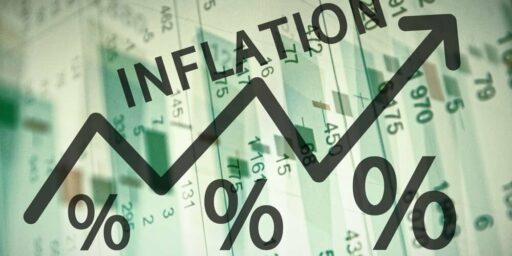Rich-Poor Divide
The Telegraph's chief political commentator sees moral decay at the top as well as the bottom.
Telegraph chief political commentator Peter Oborne is a bit over-the-top in an article titled “The moral decay of our society is as bad at the top as the bottom.” But he makes some interesting points nonetheless.
He begins:
David Cameron, Ed Miliband and the entire British political class came together yesterday to denounce the rioters. They were of course right to say that the actions of these looters, arsonists and muggers were abhorrent and criminal, and that the police should be given more support.
But there was also something very phony and hypocritical about all the shock and outrage expressed in parliament. MPs spoke about the week’s dreadful events as if they were nothing to do with them.
I cannot accept that this is the case. Indeed, I believe that the criminality in our streets cannot be dissociated from the moral disintegration in the highest ranks of modern British society. The last two decades have seen a terrifying decline in standards among the British governing elite. It has become acceptable for our politicians to lie and to cheat. An almost universal culture of selfishness and greed has grown up.
This is moral equivalence at its most absurd and it continues throughout the piece. A “selfishness and greed” that extends to wanting to keep the money one has earned for oneself is quite different, indeed, from one that involves helping oneself to other people’s property through mayhem.
But, again, beneath the silliness there’s a legitimate argument.
It is not just the feral youth of Tottenham who have forgotten they have duties as well as rights. So have the feral rich of Chelsea and Kensington. A few years ago, my wife and I went to a dinner party in a large house in west London. A security guard prowled along the street outside, and there was much talk of the “north-south divide”, which I took literally for a while until I realised that my hosts were facetiously referring to the difference between those who lived north and south of Kensington High Street.
Most of the people in this very expensive street were every bit as deracinated and cut off from the rest of Britain as the young, unemployed men and women who have caused such terrible damage over the last few days. For them, the repellent Financial Times magazine How to Spend It is a bible. I’d guess that few of them bother to pay British tax if they can avoid it, and that fewer still feel the sense of obligation to society that only a few decades ago came naturally to the wealthy and better off.
The same can be said in the United States, of course. Leaving aside the notion that conspicuous consumption is “repellent” or that it’s really any of our business how the well-off choose to spend their money, it’s true that noblesse oblige has become a quaint notion. Presumably, this is largely a function of today’s rich quite often having earned rather than inherited their money and thus believing their station has been earned rather than a happy accident of birth.
It’s also part of a larger trend throughout the social structures of insularity and a lack of sense of obligation to other. One sees it on the roads, at restaurants, in lines at the coffee shop or supermarket–pretty much everywhere. People are in their own world’s, isolated from their fellow man by electronic devices and oblivious to the concerns of others.
Yet we celebrate people who live empty lives like this. A few weeks ago, I noticed an item in a newspaper saying that the business tycoon Sir Richard Branson was thinking of moving his headquarters to Switzerland. This move was represented as a potential blow to the Chancellor of the Exchequer, George Osborne, because it meant less tax revenue.
I couldn’t help thinking that in a sane and decent world such a move would be a blow to Sir Richard, not the Chancellor. People would note that a prominent and wealthy businessman was avoiding British tax and think less of him. Instead, he has a knighthood and is widely feted. The same is true of the brilliant retailer Sir Philip Green. Sir Philip’s businesses could never survive but for Britain’s famous social and political stability, our transport system to shift his goods and our schools to educate his workers.
Yet Sir Philip, who a few years ago sent an extraordinary £1 billion dividend offshore, seems to have little intention of paying for much of this. Why does nobody get angry or hold him culpable? I know that he employs expensive tax lawyers and that everything he does is legal, but he surely faces ethical and moral questions just as much as does a young thug who breaks into one of Sir Philip’s shops and steals from it?
Now, again, Oborne weakens his argument by cheap equivalencies. It is, however, quite reasonable to wonder if Branson and Green don’t owe something to the UK and its people for providing the infrastructure that allowed them to have a chance to become fabulously successful. We can, of course, debate how much they owe and whether there’s a rate of taxation that exceeds the social bargain. But Branson, at least (I confess to not knowing much about Green) seems to be enjoying a decent reward for his efforts.







“An almost universal culture of selfishness and greed has grown up.”
I do believe he’s refering to the likes of MP’s expenses scandals and senior policeofficers taking gifts from Murdoch’s New International to look the other way on phone hacking. The amounts involved run into $millions not to mention the $billions costs of banker bailouts from their own malfeasance. We all should be asking why the perps walk free while someone who took a $7 case of bottled water gets six months in clink.
“[I]t’s true that noblesse oblige has become a quaint notion. …It’s also part of a larger trend throughout the social structures of insularity and a lack of sense of obligation to other.”
I once read that what facilitated the rise of the British Labour movement was the experiences of a lot of sons of privilege in the trenches of the First World War. These men, as officers, from Oxford and Cambridge, and had never in their lives been close to, or even met, men from the working classes. These officers were astounded and deeply embarrassed by the attitude of near-worship the ranks showed them. And many of these officers suffered unspeakable anguish as they sent or led men over the top their deaths. When they came back from the war, those few that did, they had a profoundly changed attitude toward the British class system.
Money acquired through rent-seeking is not earned James, and both Branson and Green are masters of it.
?????
But, but, but, taxation is thievery, James! Why even talk about how much?
Where pray tell would this obligation to care for others arise. Perhaps in Britain, but I doubt it given what I’ve seen of the Church of England, it would be permitted but not here in America. The appeal to Christian charity and values to support state programs is just as offensive as mentioning Jesus or praying at a state sanctioned function. Sorry, no public prayer, no appeals to people’s Christian charity. (caveat: I accept other religions have similar “do unto others” precepts but leave them as both England and the US were built on Christian precepts).
The problem with socialism is once, and I fear they are close, they kill of the only form of socialism that has a rational basis, Christianity, they’ve nothing but greed and avarice. Wether it be the rich cheating under cover of government bureaucrats or the masses using the point of the government’s gun to expropriate from those who have. Jesus on the other hand sought not to use the sword to force change but sought to change the hearts of men.
If we presume there is this same debasement in the poor as the rich, then if there is to be a taking, why on earth do these rioters not attack Buckingham Palace or members’ of Parliament homes or the fabulously wealthy instead of burning out hardworking small businesspeople and corporate stores that employ their neighbors.
James Joyner writes:
“Presumably, this is largely a function of today’s rich quite often having earned rather than inherited their money and thus believing their station has been earned rather than a happy accident of birth.”
Obviously you’re not a determinist.
There have always been crooks in society, In politics, in business, in other public service, that have always skimmed ‘a little off the top’ when making transactions. What I see now is that more and more people feel entitled to skim ‘a little off the top’ (and sometimes a lot off the top). In the Detroit Public School system for example this seems to be so rampant that very little is actually left for this kids. (…acknowledging that DPS has started to address this, though not necessarily voluntarily.)
@rodney dill: “Skimming off the top” (i.e. looting) has been standard practice for top earners in our society for decades. You can only allow that for so long before the rest of society follows suit. The take-all-you-can trader ethos has permeated almost every aspect of American culture, and it just happens to have coincided with the primacy of high finance and Wall Street.
This is why I say the greatest casualty of decriminalizing fraud has been trust.
“Presumably, this is largely a function of today’s rich quite often having earned rather than inherited their money and thus believing their station has been earned rather than a happy accident of birth.”
I suggest you think a big harder about the above statement. An awful lot of today’s rich are the offspring of the rich. Donald Trump and the Koch brothers, for example, run companies that were created by their fathers. Mitt Romney touts his business success as one of his key qualifications for President, yet I suspect being born the son of a wealthy businessman had more than a little to do with what Romney has achieved economically. Even Bill Gates’ parents, while not rich, made enough money to send young Bill to an exclusive prep school.
None of which denies that plenty of rich people, even the children of wealthy parents, have worked damn hard for the success they’ve had in life. But you do remember that old saying about people who were born on third base and thought they hit a triple?
Mike
George W. Bush is actually a good example of what I’m talking about. By his own account, Bush the Younger was basically a drunk-off-his-ass screw up until the age of 40. To his credit, he then really seemed to turn his life around. But how many plumber’s sons can be drunk-of-their-ass screws ups until the age of 40 and then quickly segue into the worlds of big business and state and national elective office?
Mike
How odd that James seems to forget that the world’s economy is in chaos because of the actions of a handful of billionaire bankers, who created and sold fraudulent securities based on worthless properties whose value they cranked up. The only reason this is not criminal activity, of course, is because they were able to buy politicians to pass laws to make it all legal. And while the entire world suffers because of their actions, they are reaping record benefits.
But because they’re rich, their actions can never be compared to those of the poor looters.
If you want to understand why these riots are going to spread all over the world, just look at what JJ writes. That particular cluelessness is all the answer you’ll need.
Clearly the biggest indicator of this divide is that I’ve never been kite-surfing with a naked girl on my back.
But only because I’ve never been kite-surfing.
There is nothing false about equating looting in the street to looting of the banks.
In both the 2008 crisis and the S&L crisis it was evident that there was massive fraud and criminality yet nearly all of the criminals walked free.
It is even considered bad form to even use the word “criminal”.
We have created a 2 tier system of justice where the rich and powerful are above the law while the common folk are subject to draconian justice.
Steal $1000 and you do time. Steal $100,000,000 and you’re a “producer”. This isn’t a Christian nation, it’s a Mammon worshiping nation. Don’t let anyone tell you differently.
I am way too ignorant to understand much about the stock market and hedge funds. That said I see no way in hell that hedge fund managers “earn” $1 billion year for their complicity in creating financial crises that crash the economy. At least for pittance I receive I create some value for society with kids that learn how to read. Maybe if our corporate titans were less greedy they would build companies that would offer employment opportunities for my inner city students.
There is no direct moral equivalency between burning down someone’s shop, and the actions of the financial elites which destroyed Britain’s economy. However, there is little economic equivalence either. While the riots will likely cause some millions of pounds in damages, the banking crisis has caused billions in economic losses. The financial elite were largely bailed out, while those at the bottom (unemployment has increased mostly at lower income levels) have suffered the most.
The rioters will, one hopes, go to jail for their actions. Those who made the decisions that ruined the economy, making billions in the process? They still sit in their home reading How To Spend.
Steve
The law, in its majestic equality, forbids rich and poor alike to sleep under bridges, to beg in the streets, and to steal their bread.
Also:
@Ben Wolf:
Are the far greater part of Englishmen poor and miserable?
You are assuming one is earning one’s money without the special legal and financial protections provided by the state. By and large many, many people today earn huge amounts of money behind the helpful shield of state protection. Apparently many conservatives believe rent-seeking is a great thing and that we should never ask anything of those that the state open its coffers to, but that’s a discussion for a different day.
@Dave Schuler: @Dave Schuler: Probably. 64% of Americans don’t have the cash to deal with an emergency of $1000. That’s not a condition which encourages happiness, it breeds anxiety and depression.
Maybe if our corporate titans were less greedy they would build companies that would offer employment opportunities for my inner city students.
Maybe if you weren’t an economic illiterate you’d know that the purpose of running a business is not to create jobs.
@bandit: Maybe if you weren’t an economic illiterate you’d know that the purpose of running a business is not to create jobs.
That’s absolutely true. Which is why all the garbage about “job creators” is both stupid and economically harmful.
Mike
As I wrote on an earlier thread, part of the purpose of a civilization is to control wild young men. This happens when you get young men to “buy in.” When you have a morally bankrupt and corrupt upper class it makes that “buy in” increasingly unlikely. People don’t buy into a rigged game.
@bandit.
Sure, but let’s look at the financial industry. Let’s use ours since I know less about Britain’s, though I would bet the same principles apply. What if the banks and mortgage originators had created products that were transparent, safe and cheaper for consumers? A better product for a better price? A product that would also, over the long term, best give value to its shareholders. Instead, they created innovative products that hid costs from consumers, that created undue risk for shareholders while moving the risks away from themselves.
There is a moral aspect to business. It still largely exists among small businessmen. They are tied to their communities. Creating a crappy product that makes lots of money in the short run, is a model that does not work well for them, and they know it. But for finance, they can make so much money in a very short period, that there is no moral or economic force limiting bad behaviors.
Steve
Society is both a competitive and a cooperative venture.
If you want to live in a society which values the competitive exclusively (Ayn Rand), then you’re looking to change this country from its Jeffersonian roots (tax the wealthy to pay for poorhouses):
“Another means of silently lessening the inequality of property is to exempt all from taxation below a certain point, and to tax the higher portions of property in geometrical progression as they rise.” –Thomas Jefferson to J. Madison, 1785.
Ditto to all above who note that the predations of the wealthy greatly exceed, in damage done, the predations of the rioters in Britain.
It is a false equivalence, just not in the sense Mr. Joyner meant it.
@bandit: so maybe I am simple minded enough to think corporations should earn profits through creating something of value (and as a side benefit employ millions of people.) I really don’t understand the growing (complicated) financial sector and what value it contributes to society. I really don’t understand tremendous greed either.
Nice thread. But I’m thinkin’……..unless he’s anatomically “different” that position just doesn’t work. But I digress…..
Reynolds makes an interesting point, although I suspect I come out differently on what to do about it. He is correct, when the system is corrupt, what do you expect the masses to think? And do? However, IMHO it is mostly the mechanism of large and corrupt government – bought by the wealthy or voted in by the non-wealthy to steal what they cannot do at gunpoint – that enables this.
One more reason to limit the size and scope of government, if you really, really care about the little guy.
@Laurie: There’s no evidence the financial industry has contributed anything to the greater economy over the last thirty years. When properly functioning banks don’t really generate economic output, they act to facilitate it by matching money up with productive businesses in need of capital.
When acting as predators banks do things like invent securitization, credit default swaps and liar loans, then defraud their customers by claiming these toxic products are AAA. The financial industry we’re stuck with is actively destroying productive capacity and assets.
@Drew: It’s a nice thought, Drew, but a modern economy simply cannot function without an active government. It’s too integral to the process.
I’m sure the looters who risked arrest feel they earned what they have, too.
@Drew:
I would agree that a morally bankrupt government in service to the rich compounds the problem.
But subtract government and you get the rich selling tainted meat and deadly meds and fall-apart cars to those same disenfranchised and that, too, deepens the sense of disconnect.
The libertarian option never has worked, never will. To remove government from the equation is to reduce the power of the working man to nearly nothing at all. At least now he has a vote. In an LP fantasy world he has nothing but servility to the rich.
The point is to find a balance, a way for the regular man on the street to have his vote count, to feel that he has a meaningful “buy in,” which mean jobs, schools, benefits and can also mean religious affiliation, community involvement and so on, a web that traps and embraces.
All of this goes to the question of whether corporations, more specifically the officers who run them, have a moral obligation and a patriotic obligation along with their duties to shareholders. I’ve long argued the answer is yes, and that no one gets a free pass on morality.
Romney argues that corporations are people? Fine, then they have to meet the moral expectations as we expect of people.
Of course what conservatives have now come to believe is that corporations are people — but people magically exempt from morality, possessing only the fun parts of personhood without any of the burden. It’s illogical and untenable, like so much that passes for conservative thought.
@michael reynolds:
And of course, corporations can never be punished like people. Failure, success, it doesn’t matter when there’s a golden parachute in my contract!
And of course, in a conservative’s mind, the wealthy and corporations can not be held to any standard of behavior or be accountable for anything (because they’re rich), yet the poor must be condemned by their very existence.
The erosion of the middle class, the professionals and college educated, should be seen as a warning sign to the financial elite. Once well-educated young men conclude that the game of society is rigged, then they provide the sparks of revolution.
@Drew: Right. Because without government, the rich and powerfull will never be able to hurt and exploit the poor and powerless. Certainly history teaches us that much — the strong are always nice to the weak as long as their isn’t a government around.
…the only form of socialism that has a rational basis, Christianity…
Thank you for a genuine belly laugh. That’s seriously awesome, right there.
why on earth do these rioters not attack Buckingham Palace or members’ of Parliament homes or the fabulously wealthy instead of burning out hardworking small businesspeople and corporate stores that employ their neighbors.
Indeed a good point and one that is made every time there is a riot that may have socioeconomic roots/inputs, because such riots just about never target the elite. My guess? A combination of ignorance/stupidity and the fact that those targets are… harder. More likely to encounter a hail of bullets. I dunno.
Why yes of course! If we were to simply follow that fable to shrink government to the size that it could be drowned in the bathtub, then all would be right with the world and individuals, especially those hiding behind their corporations, would completely forget about their own greed and corruption would just disappear and we’d all live happily ever after…
@Rob in CT: Rioters typically target the people they deal with on a daily basis, the store owner who treats them like criminals every time they walk in etc. They don’t tend to think long and hard about who their real enemies are. Analysis ain’t their strong suit.
@JKB:
From my careful study of Spider-Man, I have learned that “With great power, comes great responsibility.” And what, in our society, is a greater power than wealth?
lunaticllama:
Exactly. The rich rely on the government for many forms of protection. Adam Smith pointed out that government tends to protect the interests of the rich. He said those who benefit from “inequality of fortune” depend on the government to protect that inequality.
The riots are a reminder to pay attention to what that wacky Marxist Alan Greenspan has said:
Joseph E. Stiglitz (Nobelist and former Chief Economist of the World Bank) explains why:
The rich don’t realize that what they’re doing is ultimately self-destructive.
At the point where the middle class really couldn’t care less whether the poor decide to eat the rich or not.
I’d say we’re pretty close now.
Because revolution always begins with a spark.
Nathaniel Tapley has a great post on this very subject, that looting at the top of British society is excused.
http://nathanieltapley.com/2011/08/10/an-open-letter-to-david-camerons-parents/
This is where conservatives and right-libertarians consistently lose me: they argue that somehow this sort of behavior “isn’t as bad” as when the poor do it.
@Ben Wolf: It’s like we’re living in Leona Helmsley Land…as well as taxes being only for the little people, apparently, so is prosecution and punishment for crimes…I guess that what happens when a republic slowly becomes an oligarchy, with the seeming consent of the governed, no less…
Another part of the equation that we seem to be finessing at the moment:
We are a nation of 350 million or so people who collectively own 700 million or so guns.
and what about TOTAL and other gas entities that STEAL the wealth from Africa (Nigeria has a lot of oil – 4th nation producer…) – “French” company Total with its average of 15 BILLION in yearly profits over each of the last 5 years…yet no adequate roads, water, sanitation, schools etc. in these African nations…
yet people can wonder what animals black people are when they protest – or “riot”